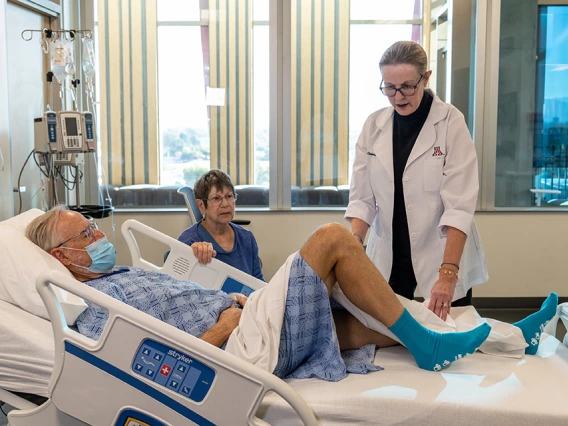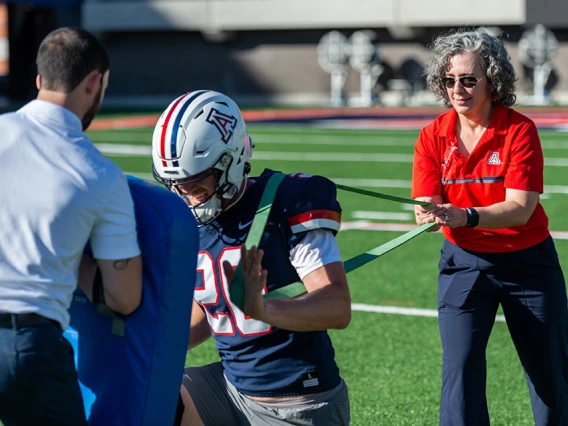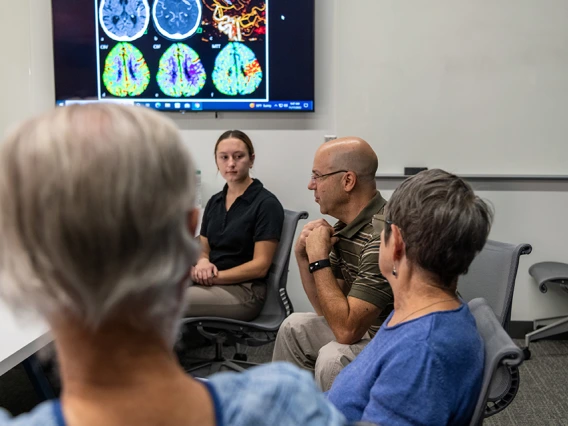Physical Therapy
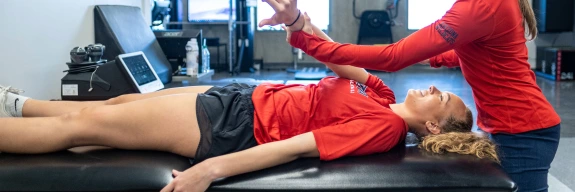
We are collaborating to develop reflective clinicians who explore human health and the profession.
The profession of physical therapy allows you to work with a wide spectrum of patients. You can improve the quality of life in children, professional athletes, older adults, or individuals who have experienced severe trauma or neurological challenges. As movement experts, physical therapists get individuals moving again in whatever capacity they can to achieve their goals.
Doctor of Physical Therapy Virtual Info Session
Wednesday, June 11, 5:00 p.m. Arizona time
Monday, July 14, 5:00 p.m. Arizona time
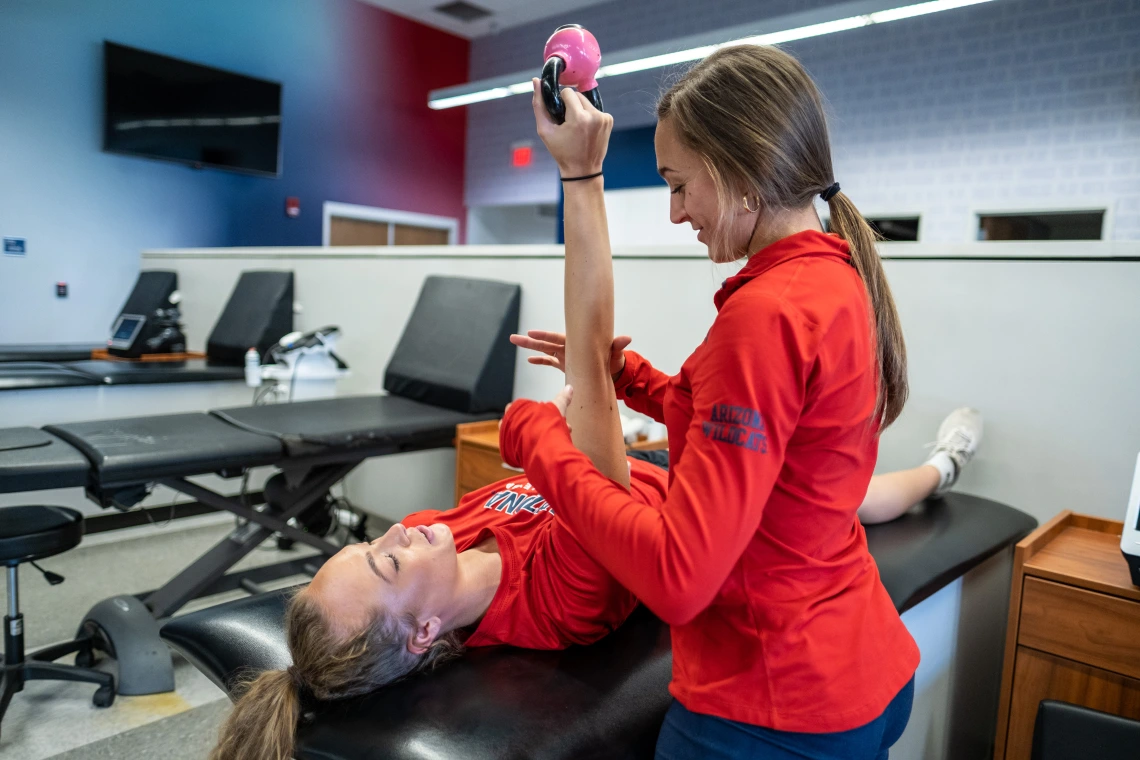
"Physical therapists are movement experts who improve quality of life through prescribed exercise, hands-on care and patient education. Physical therapists can have a profound effect on people's lives."
– American Physical Therapy Association
About the Doctor of Physical Therapy Program
The University of Arizona College of Health Sciences is preparing to launch a Doctor of Physical Therapy program. The 8 term full time program will progress students through organized, sequential studies where foundational knowledge is repeatedly connected to clinical and patient applications. Students will gain experience through community service, experiential learning, simulation, and clinical and professional skill building. Prior to graduation, students will complete full-time clinical coursework, a capstone research project, and clinical and professional skills exams that prepare them for licensure and to enter the profession as skilled generalist physical therapists and master adaptive learners.
The pursuit of excellence through innovation in education, community service, and research to develop diverse, critical-thinking Doctors of Physical Therapy who advance the profession and improve societal health.
Vision:
We are collaborating to develop reflective clinicians who explore human health and the profession.
Core Values:
Authenticity: We show up in a way that is genuine.
Collaborative: We engage inclusively for equitable outcomes.
Excellence: We inspire the best in all that we do.
Fun: We use creativity to work hard and have fun.
Innovation: We think “outside the box” to expand boundaries of teaching and learning.
Integrity: We are ethical, honest, and respectful.
Reflection: We demonstrate self and situational awareness.
Students will demonstrate their knowledge of the human body, through the lifespan, by identifying normal, pathological or injury induced states to select and appropriately apply physical therapy interventions.
Students will comprehend and identify the impact of social determinants of health, health literacy, diversity, equity, inclusion, and other societal issues that influence the provision of healthcare.
Students will be collaborative practitioners, comfortable working together with all members of the healthcare team to achieve optimum outcomes for their clients.
Students will be critical consumers of the literature to integrate best practices and construct appropriate research questions to advance the knowledge of the profession.
Students will analyze and demonstrate traits of the master adaptive and lifelong learner essential to the future needs of the profession.
Program Goals
Graduate & Alumni Goals
Student Goals
Faculty Goals
CAPTE Statement
Effective April 29, 2025 The University of Arizona Doctor of Physical Therapy Program has been granted Candidate for Accreditation status by the Commission on Accreditation in Physical Therapy Education (3030 Potomac Ave, Suite 100, Alexandria, Virginia 22305-3085; phone 703 706 3245; email: accreditation@apta.org). If needing to contact the program/institution directly, please call 520 626 6947 or email uaptinfo@arizona.edu.
Candidate for Accreditation is an accreditation status of affiliation with the Commission on Accreditation in Physical Therapy Education that indicates the program may matriculate students in professional courses. Achievement of Candidate for Accreditation status does not assure that the program will be granted Initial Accreditation.


